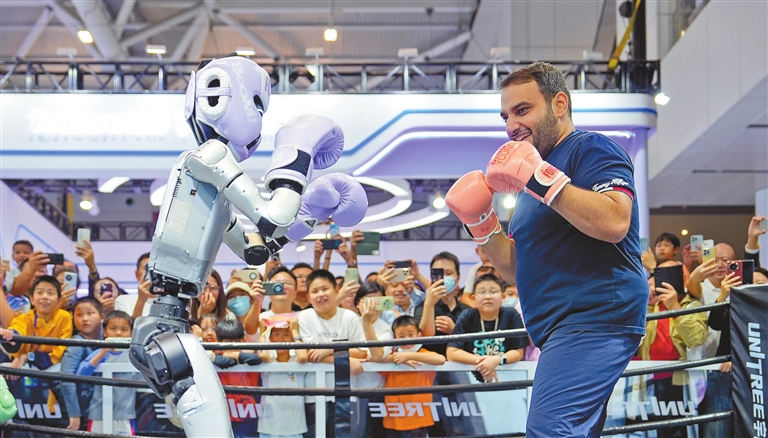
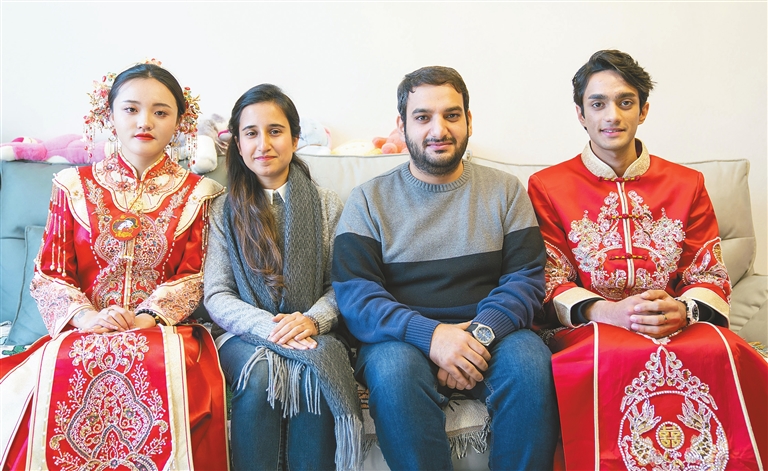
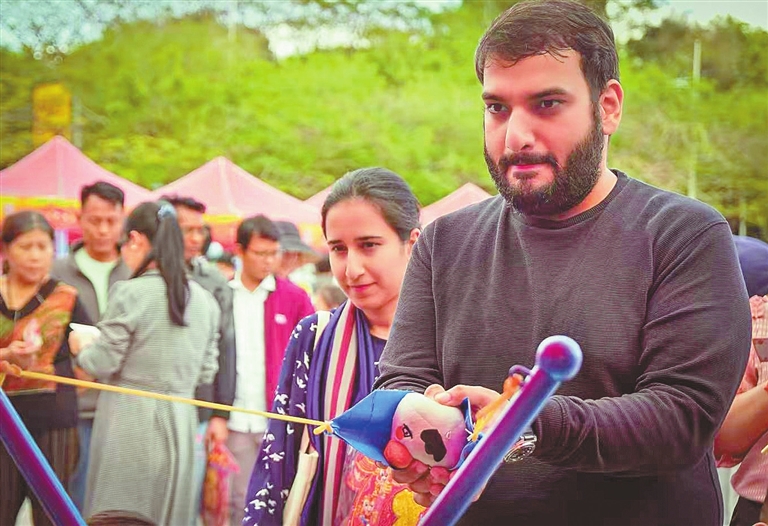
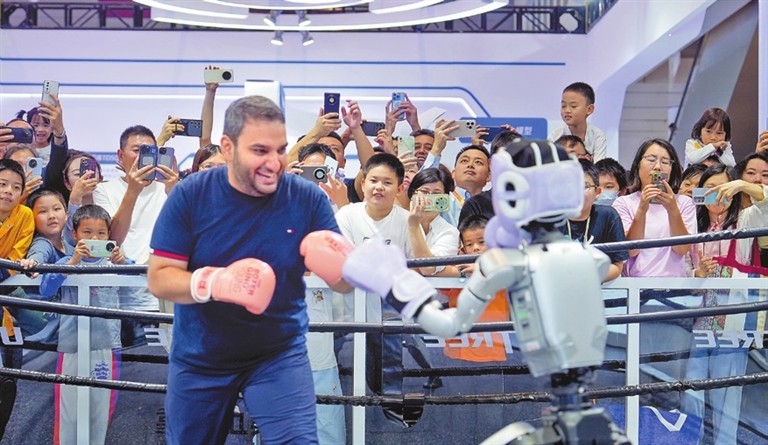


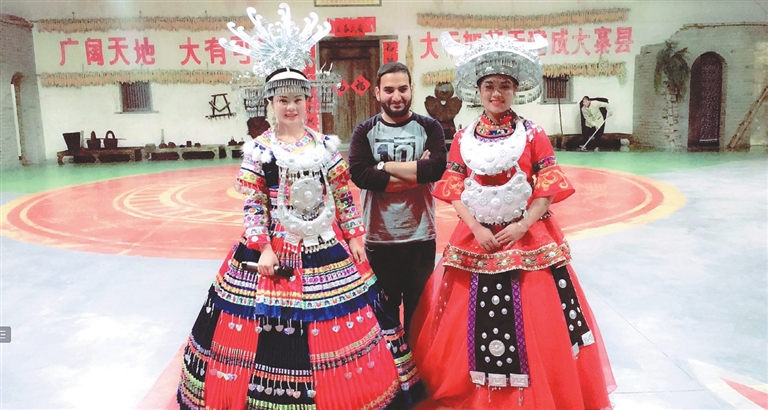
Editor’s note Welcome to Gen Z Weekly, our new column dedicated to showcasing the voices and experiences of Generation Z in Shenzhen and beyond. We’ve created this space to share authentic, youth-driven narratives that reflect the energy and perspectives of today’s young people. Through Gen Z Weekly, expect to hear directly from international students and Chinese youth about their campus lives, personal journeys, and thoughtful insights. Zhang Yu JeniZhang13@163.com FOR Warsi Syed Muhammad Ahmad Hasan, a master’s student in management sciences from Pakistan, this city is not just a backdrop but a rigorous classroom. His journey here began with a simple, pragmatic opportunity: a degree at the Harbin Institute of Technology, Shenzhen (HITSZ). “We got an opportunity here to see,” Hasan explained, his tone reflective. This initial curiosity has unfolded into a two-year immersion that has reshaped his perceptions, challenged his comfort zone, and instilled in him a core philosophy for the modern age — to always be a learner. From preconceptions to a digital reality Like many from outside China, Hasan’s initial image of the country was far removed from its reality. “I thought that China would be not much [of a] developed country,” he admitted with a candid honesty. This perception shattered upon arrival. While his first point of entry was Guangzhou, it was Shenzhen that became his definitive introduction to modern China. “Shenzhen is really good, developed, and it offers a lot of things to do,” he said. “The life is great here.” This initial impression of a developed city has only deepened over time, evolving from a superficial observation to an appreciation fostered by university-organized cultural activities and city tours. He credited these experiences with helping him move past the initial “okay” feeling to a genuine affection for his new home. The transition wasn’t without its hurdles. The primary barrier was language. “When I landed, I could not speak Chinese [at] that time. So for me, it was difficult because of the language barrier,” he recalled. But perseverance paid off. “Now I can speak.” This triumph over the language barrier is a point of quiet pride, a key that unlocked deeper social integration. Cultural respect and culinary surprises When asked about cultural shock, Hasan’s answer was measured and diplomatic, reflecting a deep-seated respect for cultural differences. “I respect every culture… I think we need to respect every culture wherever it belongs,” he stated. For him, the word “shock” carries a negative, almost offensive connotation. Yet, he vividly remembered a moment of profound cultural difference during a trip to Laojie, a famous commercial street in Dongmen, Luohu District. “I saw a lot of insects, and some people were eating the insects. That was really different for me to observe this thing.” While he firmly defended the right to individual choice, he conceded that adjusting to some local eating habits was a challenge. His culinary journey, however, has been largely positive. He enthusiastically listed his favorite Chinese foods: Beijing roast duck (“amazing”), Haidilao hot pot (praising the exceptional service), and dumplings (“yummy”). His most unexpected delight? Mooncakes. “The red bean mooncakes and the egg yolk mooncakes are amazing,” he said. A hub for innovation As a student in China’s famed “Silicon Valley,” Hasan is perfectly positioned to assess its innovative energy. His visit to the recent China Hi-Tech Fair left a powerful impression. “I’ve never seen such an exhibition with AI advancements, tools, and robotics. It’s amazing,” he said, acknowledging it was an unparalleled experience in his life. He has also been captivated by the city’s futuristic public spectacles, recalling drone shows at Window of the World and Dameisha Beach with awe. However, Hasan offered a candid critique of Shenzhen as a destination. He drew a clear distinction between the city’s identity as a tech hub and its appeal as a tourist spot. He attributed this to the city’s youth, noting it lacks the deep historical roots of other Chinese cities. Among the typical attractions, he singled out Sea World as a standout for its exhibitions and performances, a place where one can “have a blast” with friends. A pragmatic future Perhaps the most defining aspect of Hasan’s story is his pragmatic outlook on his future in China. He plans to stay for four or five years after graduation to continue learning, with the specific and ambitious goal of applying to a Ph.D. program at the prestigious Tsinghua University. “If I got an opportunity there, obviously I would never, ever turn it down,” he stated, his voice filled with determination. Yet, his long-term vision looks beyond China’s borders. His reasoning is practical, centered on career prospects and immigration policy. This clear-eyed assessment doesn’t diminish his appreciation; it simply frames his time in Shenzhen as a critical, but finite, chapter of immense personal and professional growth. The mindset of a constant learner When asked for his advice to other international students, Hasan didn’t mention specific apps or must-see sights, though he has mastered the essential digital ecosystem of WeChat, Alipay, and Meituan. Instead, he offered a mindset. “The biggest lesson that I learned here… always be a learner. Never think like you are the best,” he said. In a city like Shenzhen, where the pace of innovation is breathless, this is more than just a platitude; it’s a survival strategy. “Every day, new things are coming onto the market… you have to be a constant learner. This is the most important tool to survive in the new era,” he noted. | 
